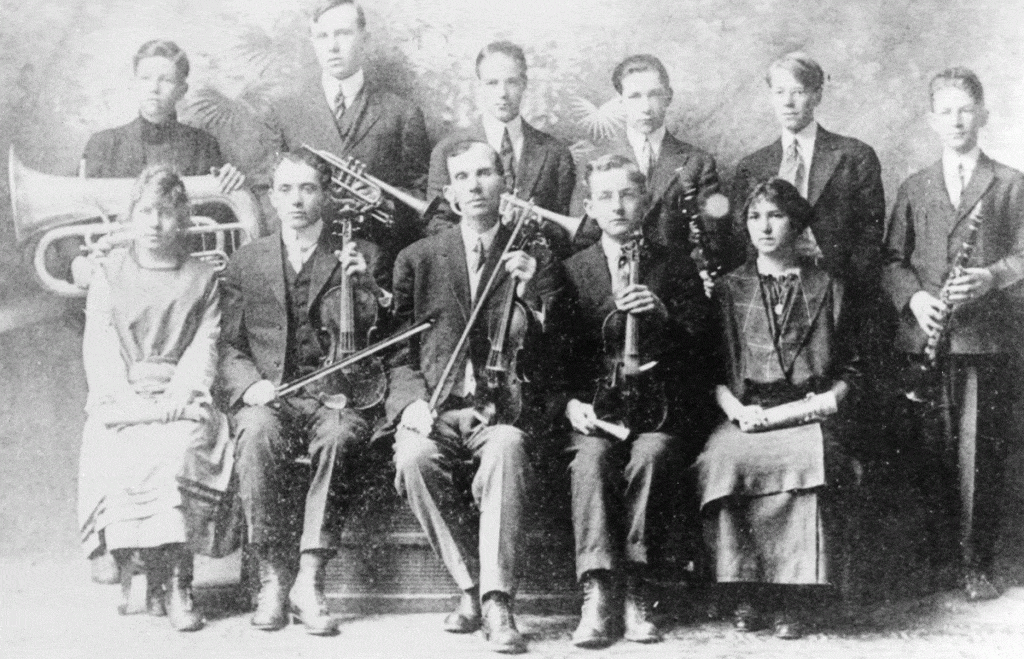John Whitta was born in Australia on May 28, 1866. He lived a short time in both Nevada and California before coming to Utah. He first lived and worked in Castle Gate, which was a coal mining town and is now considered one of Utah’s ghost towns. Eventually, he settled in Park City, where he lived for fourteen years. John married Lucy Reese and they had four sons together named John, Will, Lester, and Albert.
Whitta was a miner for many years until he came down with silicosis, a disease that affects the lungs. “Miner’s consumption,” as it is referred to colloquially, is caused by the dust of iron, coal, silicate, or other industrial particles that, when inhaled, settle in and cause damage to the lungs. Symptoms of this disease included shortness of breath, chronic cough, or chest pain. John quit mining on account of his health after his doctor told him he needed to stop breathing in the dust.
John always loved music. He played a number of brass instruments as well as the violin. He founded the Park City Independent Band, the Park City Juvenile Band, and taught private lessons. He conducted the orchestras at Jefferson School and the Park City High School. He was also a member of the Park City Military Band. Although he had no academic degree, he became known around town as Professor Whitta.

Photo credit: Park City Historical Society and Museum, Fraser Buck Collection
Despite having left mining, the damage to John’s lungs was permanent and his health continued to decline. On a doctor’s recommendation, he moved to Arizona in the hopes that a more moderate climate would do him good, but missed his life in Park City enough to return a short time later.
In 1915, John became deathly ill from complications of miner’s consumption. Parkites organized a “testimonial concert” in recognition of his service to the town throughout the years and to help raise funds to support his family.
The event was held at the Dewey Theater. The Park Record reported that, “the house was filled with friends and admirers of the gentleman, and every number rendered was heartily applauded and thoroughly enjoyed.” John was unfortunately too sick to attend, but the Mountain States Telephone Company set up a “special telephone service” connecting the Whitta home to the theater. A large megaphone was installed at the front of the stage so John and his family could hear the concert down the phone line. “Mr. Whitta heard distinctly every number rendered,” the Record stated. John truly appreciated the music and kindness of all of his many friends. Three days later, John passed away peacefully at his home.